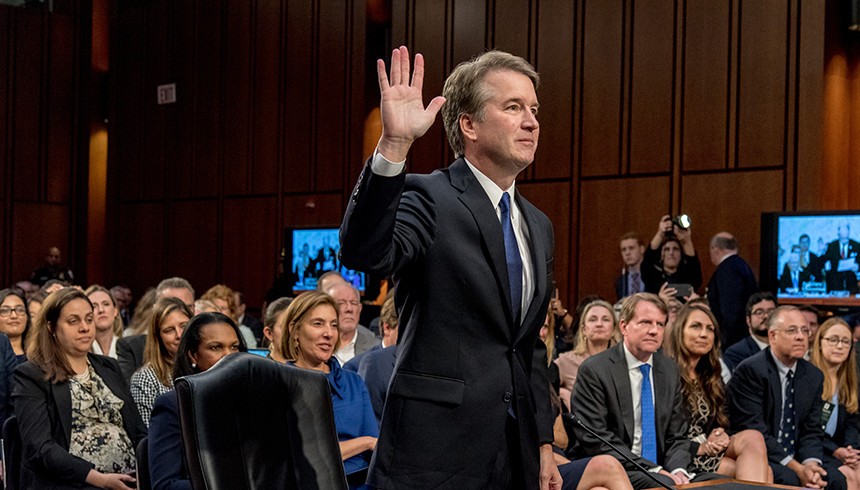A pivotal moment at the Brett Kavanaugh hearings
If the judge is a person of strong moral character, he should demonstrate that.

Accusations of sexual assault against Brett Kavanaugh turned his nomination to the Supreme Court from an expected political slugfest to a national deliberation on the message of the MeToo movement. Are the charges made by Christine Blasey Ford and Deborah Ramirez to be taken seriously, or are they to be shrugged off by those in authority—in this case, the U.S. Senate? What kind of shame and derision will the accusers have to face in coming forward?
Some of Kavanuagh’s defenders made their position clear by dismissing the charges out of hand and denouncing the accusers for smearing a good man’s name. More circumspect supporters acknowledged a need to hear from the accusers, but then insisted that the testimony wouldn’t alter their vote in Kavanaugh’s favor. Their assumption is that a moral statute of limitations has run out. Ari Fleischer, press secretary for George W. Bush, formulated a widely expressed view: youthful transgressions should not “deny [people] chances later in life.” If that were to happen, the argument goes, a whole lot of men would be disqualified from public service.
To which the reply must be: If so, what would be so bad about that? The cultural change that the MeToo movement is calling for is precisely a change in expectations and norms. Assault and harassment of women at any age is not to be winked at. The consequences of assault on women are deep and enduring; why should there be no consequence for men? In any event, no one is suggesting that Kavanaugh be disqualified from his current job on the D.C. Circuit Court of Appeals, only that, if the charges are credible, he should not be elevated to the highest judgeship in the land. If the time indeed comes when no male candidates for the court can be found who aren’t subject to credible charges of harassment and assault, doubtless there will be many outstanding female candidates who could be considered instead.





